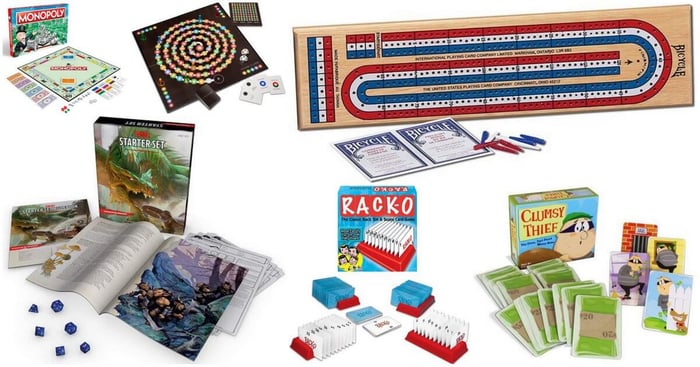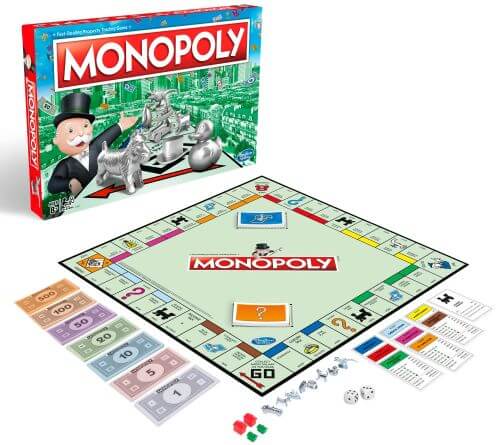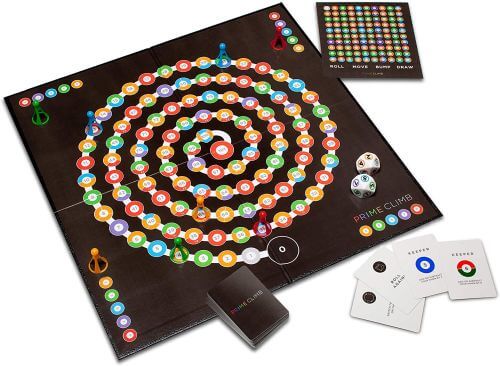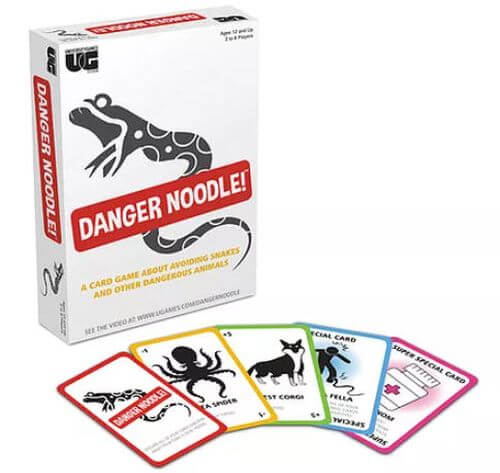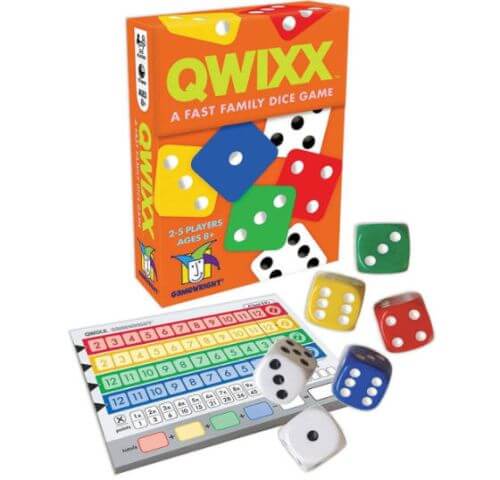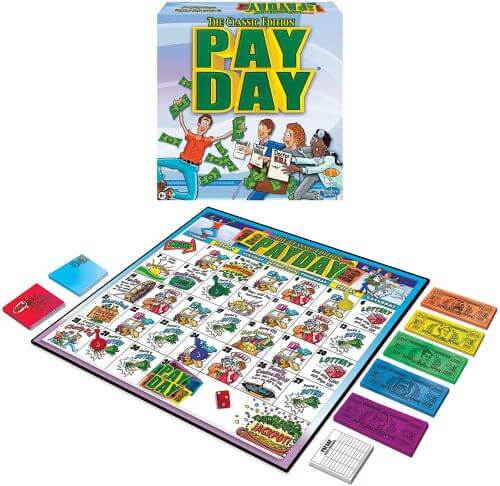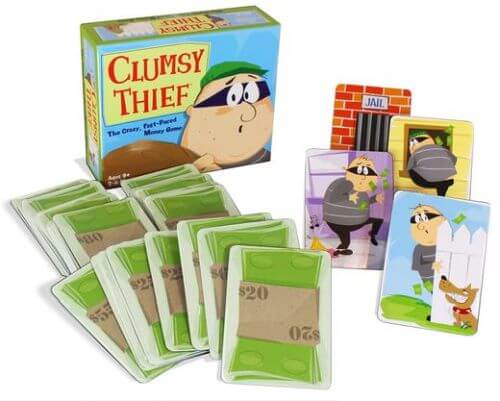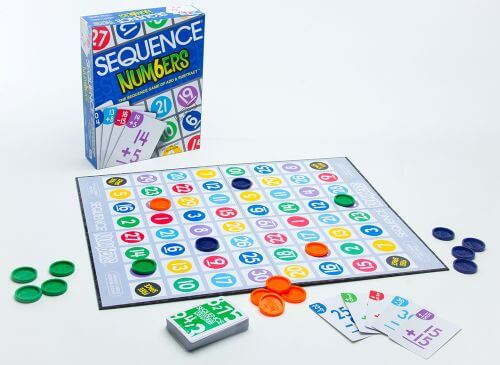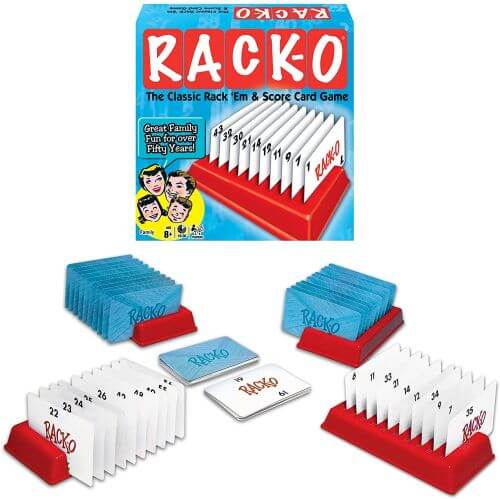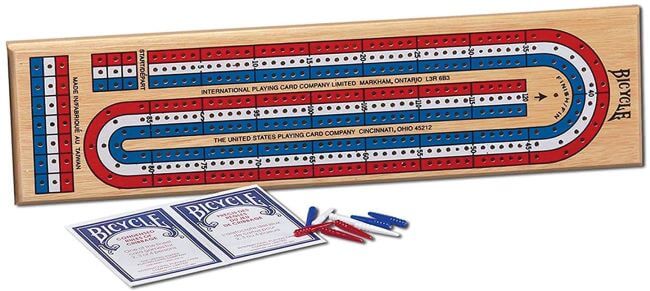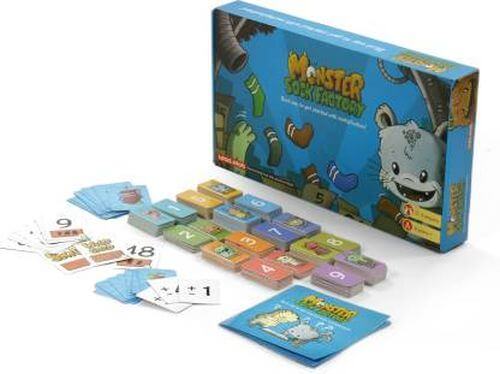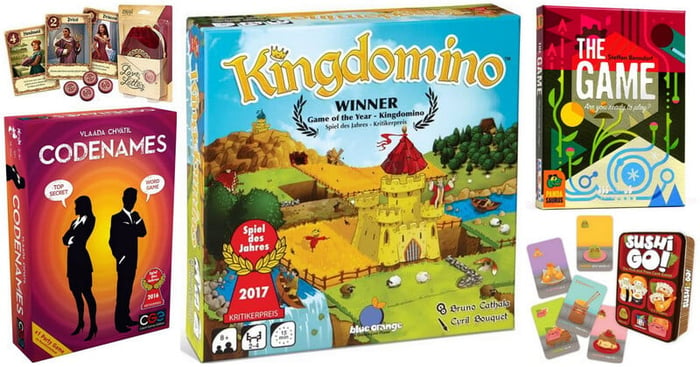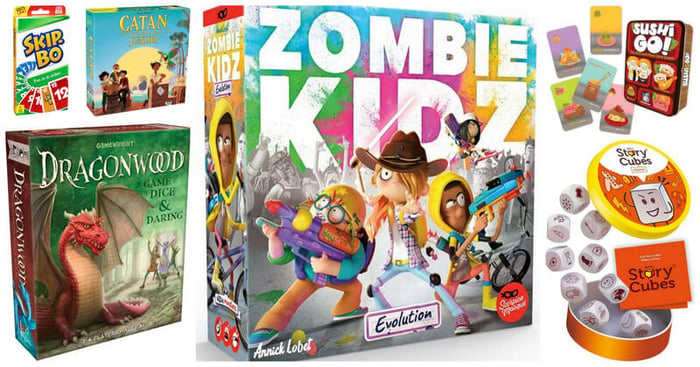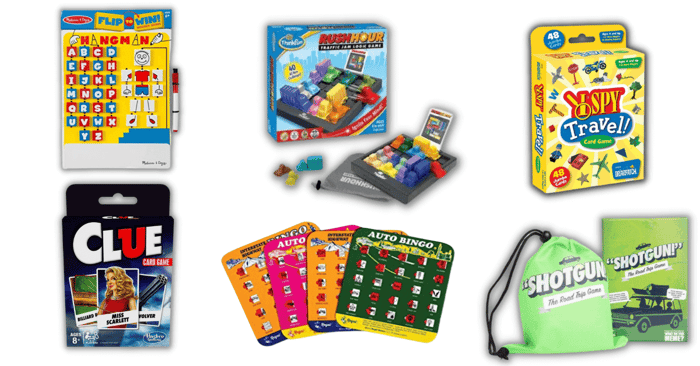Want to sneak some learning time into family game night? These are the games you need! We asked our Facebook fans to share their top choices for games that naturally encourage math skills. Here are their recommendations. A few of these are games that teach math by design, but most are just new and classic options that everyone can enjoy. Choose one or try them all—they all add up to fun!
We use Amazon affiliate links to recommend products we trust and love, so we might earn a small commission if you decide to purchase. However, we believe in giving back as a company, so we'll be donating these profits back to great nonprofits making a difference in the world.
1. Monopoly
Since its debut in 1935, Monopoly has been bringing families together for fun with a side of math. Buying properties, then keeping track of and collecting rents—these all build counting and money skills. For even more math practice, let your child be the banker. These days, Monopoly has dozens of versions to choose from, so there's something to interest everyone! (2-8 players, ages 8+)
2. Prime Climb
Prime Climb was designed to help kids learn math, but it's so fun to play that kids won't mind. Leilani V. says, "We love Prime Climb. Super fun way to get them doing mental math." Each player tries to move their two pawns around the spiral board to get to exactly 101. When it's your turn, roll the polyhedral dice and add, subtract, multiply, or divide the number your pawn is on by that number. Move your pawn to the new number. Prime Cards add an extra dimension to the engagement. This is a quick game, lasting about 10-15 minutes per round in general. (2-4 players, ages 10+)
3. Danger Noodle
This is one of those games that teach math and is certain to make you giggle! For those who don't know, a "Danger Noodle" is another name for a snake. Each card in this game includes more clever nicknames for other animals, like "Chubby Unicorn" for rhinoceros and "Prison Pony" for zebra. The cards also each have a number, positive or negative. Players collect cards in an effort to reach a hand totaling exactly 30 points. You can draw as many cards per turn as you like, but if you draw a Danger Noodle, you lose all your cards! This fast-paced game can be over in just a few minutes, depending on the cards you draw. (2-8 players, ages 10+)
4. Qwixx
Even younger kids can play this game with a little help to keep up the pace. Roll the dice, then cross off numbers on your card based on the colors and numbers on the dice. Cross out as many as you can before the game ends to win. Kids learn to recognize numbers, then do the math to figure out their score. This is another fast-playing game that takes only minutes per round. (Ages 8+, 2-5 Players)
5. Pay Day
Like the money aspect of Monopoly, but don't have the time for a long game? Pay Day takes you through a month to pay day, with all the costs of daily living along the way. Each payday, you can decide to put some money in savings, plus you can take out a loan if you need one. The money management aspect of this game has kept it popular since 1975. (2-4 players, ages 8+)
6. Clumsy Thief
Adding to make 100 is a skill kids learn in school, but this money-based card game makes it so much more fun! Try to pair cards in your hand to make $100, but watch out for thieves! Jail cards, money snatching, and rapid math make this quick game a riot. (3-6 players, ages 8+)
7. Sequence Numbers
Each card in this game is an addition or subtraction problem. Solve it, then play your chip on the correct answer on the board. When you get five chips in a row, you win the game. Yes, this is clearly a math practice game, but it's entertaining too! (2-6 players, ages 7+)
8. Rack-O
Sequencing numbers is a basic math skill, and it's what Rack-O is all about. Draw cards and rearrange the ones on your rack until you have ten in a row, starting with any number. Bonus: If you like Rack-O, Skip-Bo is another cool game to try. (2-4 players, ages 8+)
9. Cribbage
Cribbage dates back hundreds of years, supposedly invented by a wealthy English poet. Players compete to be the first to score 121 points, with points awarded for different card combinations. The running total of cards can never exceed 31, so constant mental math is a must. Get all the rules for playing cribbage here. (2 players, ages 10+)
10. Monster Sock Factory
Here's one more game that was designed with young math learners in mind, with an adorable monster theme. Kids help friendly monsters get warm socks out to the residents of a snowy valley, practicing multiplication as they go. There are multiple variations that can be differentiated for various levels and ages. Teachers have helped develop and improve this game, so the educational factor is sound. It's still plenty of fun to play, though, and kids will definitely enjoy it! (1-4 players, ages 7+)
11. Dungeons & Dragons
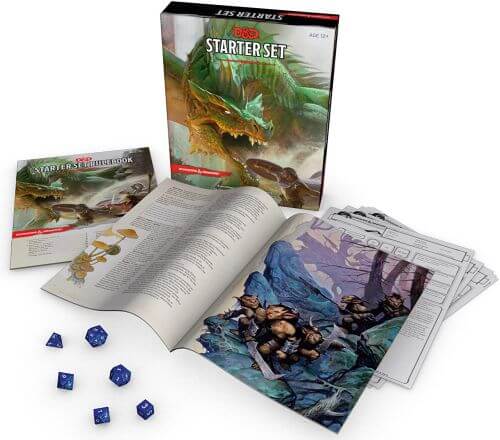
Have you heard the news? Playing Dungeons & Dragons can make kids smarter! Many of our Facebook fans pointed out the math benefits of D&D. Jenny P. notes that D&D has "loads of stats and mental math involved." There's a lot of addition and subtraction as players determine hit points and damage, plus keep track of their money. The way Dungeons & Dragons combines creativity with math makes it one of the best learning games kids can play. If you're new to D&D, try this starter set to begin your journey. (Number of players and recommended ages vary.)
12. Yahtzee
Here's another family favorite with math built right in! Players roll the dice up to three times for each round, then choose the best option on their scorecard. Roll five of the same number, and you get Yahtzee—and 50 points! Yahtzee moves fast and each game takes only about 10-15 minutes, though it might be a little longer with younger kids who need time to add or multiply. (Ages 8+, 1+ players)

